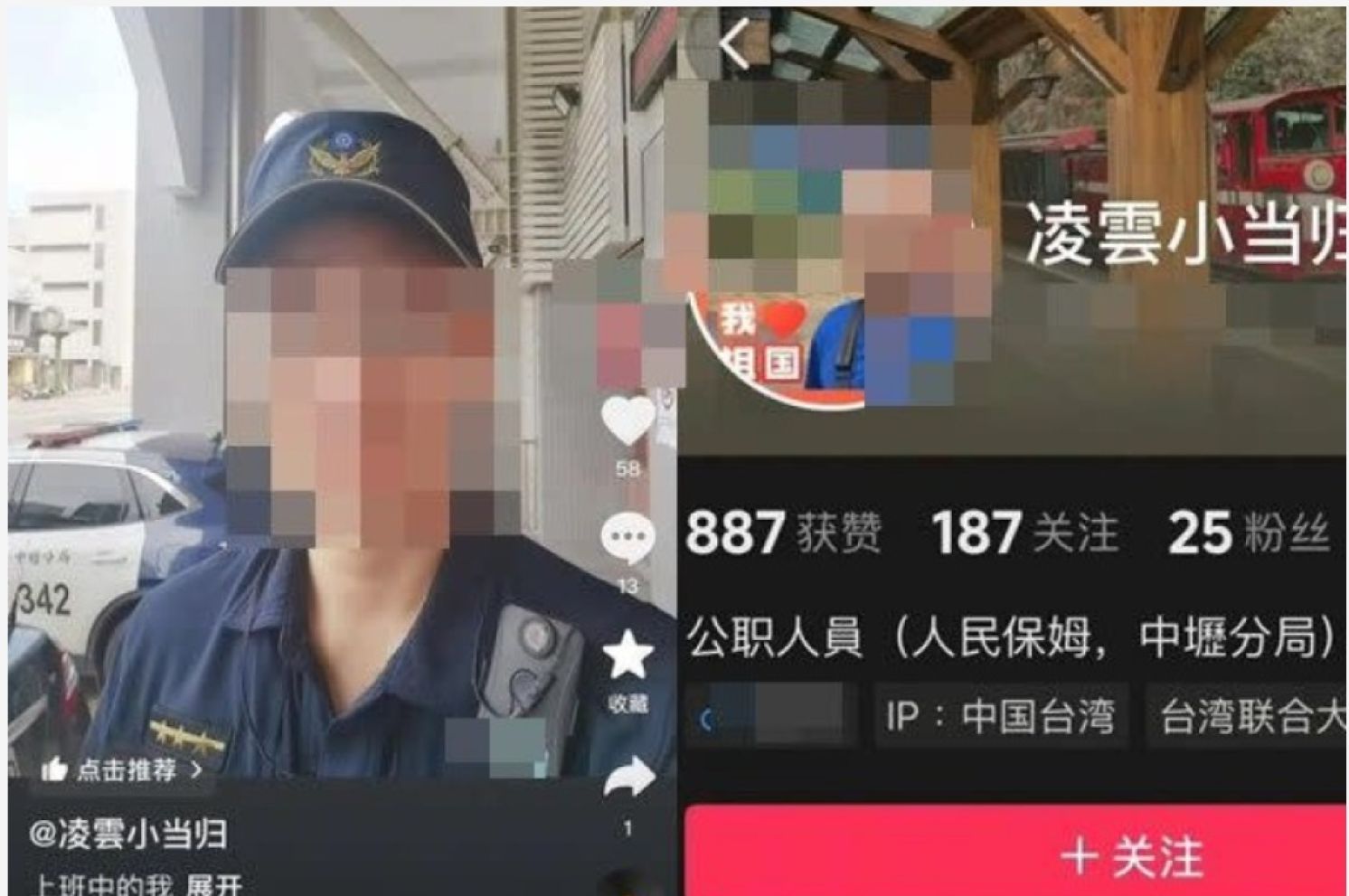
Lai Administration Suppresses Freedom of Speech to Counter China
United Daily News Editorial, March 25, 2025
President Lai has officially labeled mainland China a “hostile foreign force,” and anti-China sentiment within Taiwan is intensifying. A primary school principal is under investigation by the Department of Education, Taoyuan City Government, for saying “I love you, China” on TikTok. A police officer in Zhongli District, Taoyuan, received a demerit for calling himself “Chinese” on the same platform. These two landmark cases have become watershed moments for free speech in Taiwan. Since when did identifying oneself as ”Chinese” become a crime in Taiwan? Could anything be more absurd?
Despite the long-standing unification-independence debate in Taiwan, cross-strait exchanges have allowed people to interact peacefully. During the tenure of President Chen Shui-bian from 2000 to 2008, even though some inflammatory remarks triggered tension, civilian exchanges were largely unrestricted, and freedom of speech remained intact. Different stances on unification and cross-strait interaction flourished, reflecting the stark contrast in openness between Taiwan and the mainland.
Under former President Tsai Ing-wen, 'resisting China and protecting Taiwan' became the dominant narrative, and cross-strait relations entered a deep freeze. In 2019, the Tsai administration passed the Anti-Infiltration Act. At the time, Tsai emphasized that the law targeted infiltration, not communication, and refrained from drawing too many red lines on cross-strait interaction.
Since taking office, the administration of President Lai Ching-te has accelerated its push toward a 'two states' narrative, heightening hostility between the two sides—especially on the internet. Taiwanese netizens using words like “video” or “power bank”—terms common in mainland China—are attacked for using so-called “Chi-na language.” Some users actively search for such terms online and berate others, calling themselves the “language police.”
Both sides of the strait share cultural roots in Chinese civilization. We write “Chinese” characters and speak the “Chinese” language—they define our upbringing. Ironically, even the so-called “language police” speak the same language they claim to oppose. If all 'Chinese terms' must be eliminated, even communication will become difficult. It’s tragic that “Chi-na,” originally a derogatory term used by the Japanese to demean all of China, including Taiwan, is now gleefully used by some Taiwanese—so anti-China that they forget who they are. When political figures manipulate public sentiment like this, Taiwan’s democratic foundation becomes more barren, losing its rich diversity.
The Lai administration’s constant emphasis that “China is the enemy” has led to chilling effects in society. In one case, a police officer in Zhongli registered a TikTok account noting on his profile: ”Public servant (Zhongli precinct), I am Chinese.” He was given a demerit for ”inappropriate speech,” and his supervisor was reprimanded for ”inadequate supervision.” A DPP city councilor also reported a Taoyuan elementary school principal who posted “I love you, China” on TikTok. The Department of Education announced an investigation and said the incident would be addressed during performance evaluations.
But what law did they actually violate? The Lai administration has deliberately equated China with an “enemy state,” but “China” is not merely a political entity—it also holds cultural meaning. Declaring “I am Chinese” is both an expression of free speech and cultural identity. It is consistent with the Constitution and the Act Governing Relations Between the People of the Taiwan Area and the Mainland Area. In fact, when Tsai Ing-wen served as head of the Mainland Affairs Council, she said the exact same thing. Under President Lai’s current standards, wouldn’t that be considered treason? If the administration believes such speech is illegal, it should first amend the Constitution or pass new laws—otherwise, it’s nothing but literary inquisition.
That’s why the Zhongli police could not cite any law violated when issuing the demerit. Whether they were preemptively pleasing higher-ups or following orders from the National Police Agency (NPA), Ministry of the Interior, the top-down system is evident. What’s more troubling is that Taoyuan, governed by the KMT, followed suit with the DPP’s actions, neither stopping the Ministry of Education’s investigation nor objecting to the police officer’s punishment—merely stating they “respect” the process. This disregards legal legitimacy and institutional integrity. Taoyuan Mayor Chang San-cheng should intervene decisively and defend the people’s right to free speech and cultural identity to avoid becoming complicit in suppressing these freedoms.
The Lai administration is slowly boiling the frog—drawing red lines on speech under the guise of national security, ultimately leading to the erosion of Taiwan’s democratic soil. If that continues, how would Taiwan be any different from the very regime it so fervently opposes?
From: https://udn.com/news/story/7338/8629494
〈Back to Taiwan Weekly Newsletter〉